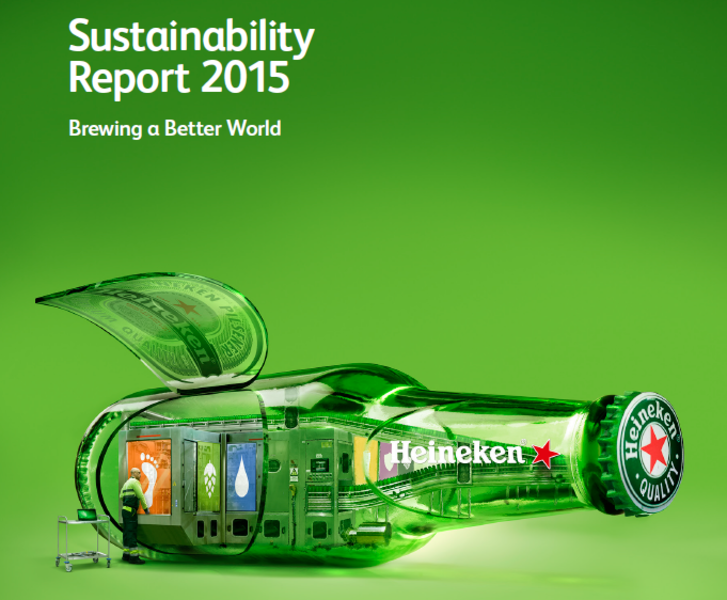Heineken-UNIDO partnership supports sustainability in developing markets

By 2030, the world is expected to require 40 per cent more water and 50 per cent more energy. Population growth, changing lifestyles and climate change will place increasing pressure on the environment, particularly on the water, energy and food nexus. One sector that touches all three of these areas is the brewing industry.
The ongoing partnership between the United Nations Industrial Development Organization (UNIDO) and Heineken, the international brewer, addresses a range of sustainability-related challenges with the aim of promoting inclusive growth and enhancing the environmental impact of Heineken’s operations in developing countries. The Heineken-UNIDO partnership covers three areas: water stewardship, renewable energy and energy efficiency, and local sourcing of input materials.
Under the water stewardship component, the partnership focuses on developing initiatives for catchment areas classified as “water-scarce”. These initiatives complement Heineken’s commitment to reduce water consumption in their breweries located in these regions. Currently, joint activities are concentrating on breweries in Egypt, Ethiopia, Indonesia, Mexico and Nigeria.
Watch video "HEINEKEN and UNIDO partnership - Tackling worldwide water scarcity"
The programme started in 2015 with UNIDO and Heineken organizing two community engagement workshops on the future of local watersheds: one in Ethiopia for the Dabena river catchment area; and the other in Nigeria for the Ibadan region in the Ogun-Oshun catchment area. Measures identified by stakeholders to reduce water stress in the Dabena catchment area include the reforestation of degraded upstream catchment areas, the promotion of sustainable land use and agro-forestry practices, and the establishment of community-based water retention facilities. This initiative is also draws on support from Israel, which is well-known for its extensive experience in water conservation, technology and innovative practices. More workshops are planned for 2016 and 2017.
Under the second pillar of the partnership, UNIDO and Heineken are jointly examining the potential of renewable energy sources to enable Heineken’s developing country brewing plants to reduce fossil-fuel dependency as well as to supply excess clean energy back to local communities, through either Power Purchase Agreements or the construction of local mini-grids. This work is being piloted at Heineken’s brewery located in Freetown, Sierra Leone.
In addition, UNIDO and Heineken will look at ways to improve the industrial energy performance of Heineken’s Sedibeng Brewery, located near Johannesburg, South Africa. This will contribute to reducing power demand on the national grid, which is a high priority area for the South African Government. At the same time, this work will reduce the carbon footprint of Heineken’s production operations in line with the company’s CSR strategy.
Finally, under the local sourcing component, the partnership is exploring opportunities to expand Heineken's Supplier Development Programme as part of the company's commitment to source 60 per cent of its raw materials in Africa locally. Heineken currently sources locally in 11 operating companies across Africa, through 24 different sourcing initiatives, involving over 120,000 farmers and reaching approximately 840,000 family members.
The UNIDO-Heineken partnership is an exciting new area of work for UNIDO and in the words of LI Yong, the Director General of UNIDO, “Ultimately, we want to improve the lives of people in developing countries and make a meaningful contribution to inclusive and sustainable development while, at the same time, create flourishing markets that foster business opportunities”.
Blanca Juti, Chief Corporate Relations Officer of Heineken, said: “Partnering with UNIDO helps us deliver on our commitment to 'Brew a Better World', which is at the core of our mission as a company.”
Read the Heineken N.V 2015 Sustainability Report
and other reports here
For more information, please contact:
Sabine Haspel
UNIDO Expert on Business Partnerships
email